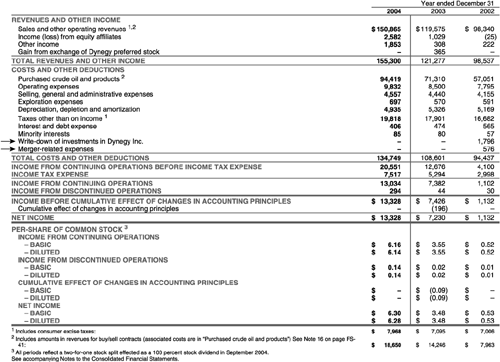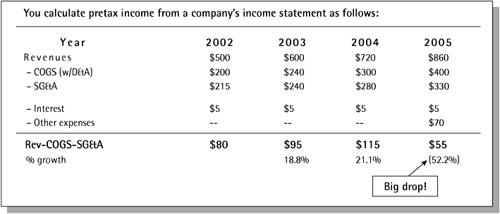Unusual or Infrequent Items
Unusual or Infrequent Items are transactions that are unusual in nature or infrequent, but not both (Exhibit 5.6). Such transactions may include:
Gains (losses) from the sale of the company’s assets, business segments
Gains (losses) from asset impairments, write-offs, and restructuring
Losses from lawsuits
Provision for environmental remediation
Exhibit 5.6. Unusual or Infrequent Items May Include Merger-Related Expenses
Source: 2004 Chevron Income Statement and 2004 Chevron 10-K are used with permission of Chevron Corporation.
These are reported pretax, so for the purposes of financial analysis, unusual items must be excluded from future earnings when forecasting them (Exhibit 5.7).
Exhibit 5.7. Unusual or Infrequent Items Must be Excluded for the Purposes of Financial Analysis

Unusual or infrequent items pose a challenge for financial analysts because they can skew the picture of operating performance, which in turn can hamper analysts’ ability to make forecasts for future operating performance. Accordingly, the following must be considered when looking at unusual or infrequent items:
Management has discretion over how to classify operating items.
Unusual or infrequent items are not always clearly labeled. ...
Get Crash Course in Accounting and Financial Statement Analysis, Second Edition now with the O’Reilly learning platform.
O’Reilly members experience books, live events, courses curated by job role, and more from O’Reilly and nearly 200 top publishers.

